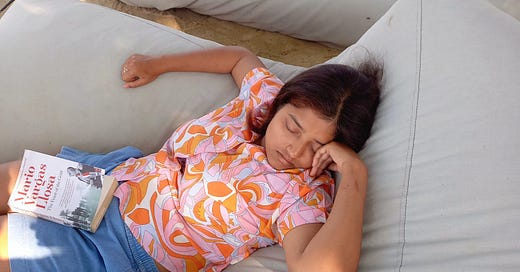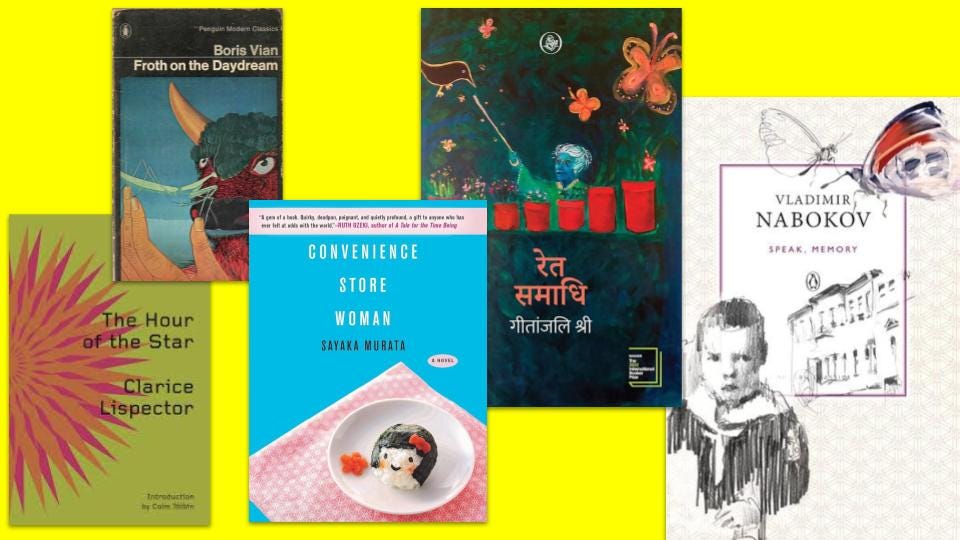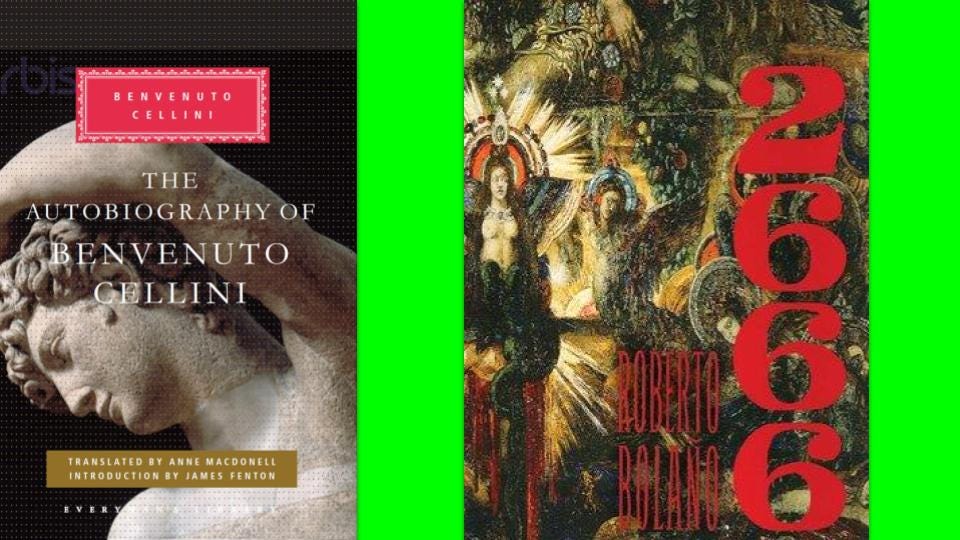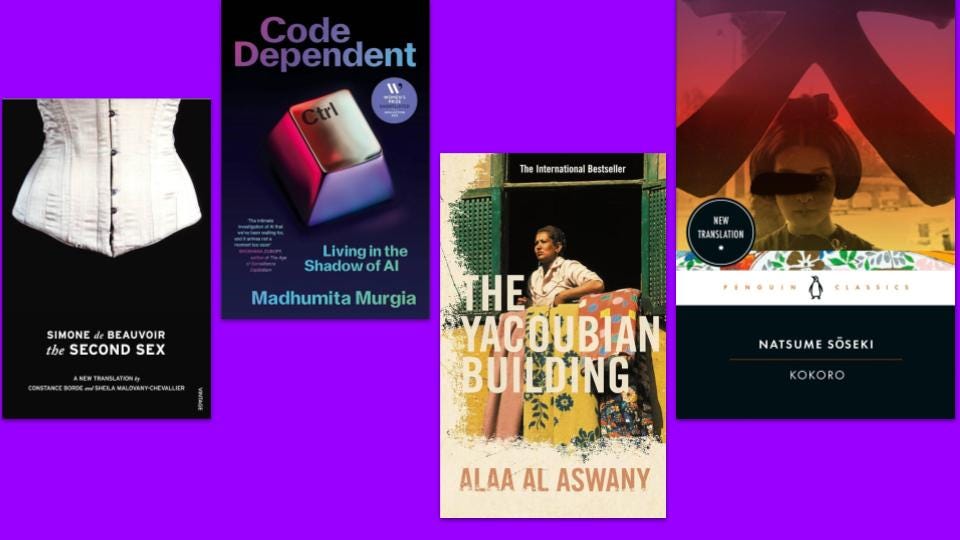I started 2024 with
The Feast Of The Goat by Mario Vargas Llosa - It’s 80% true story (I’m a sucker for true stories) set in the Dominican Republic and portrays the assassination of Dominican dictator Rafael Trujillo and its aftermath. The storytelling felt cinematic, offering a profound insight into a dictator’s mind, rigour, relationships and the continuous game of power and misery within. My favourite character was Joaquín Balaguer whose lack of desires made him difficult for Trujillo to test him. Balaguer always seemed to be in a state of equanimity in the roller-coaster ride of politics.
Next, I ordered a 992-page biography
Pessoa by Richard Zenith - Fernando Pessoa was a significant Portuguese literary figure of the 20th century but unknown in his time. When he died in 1888, they found a trunk with more than 25000 pages which are been edited till today. He was a weird person whose thoughts were deeper than the ocean, and wanted to understand how he became what he became. I made it to page 400, covering his life up to age 18, but the heavy political context of Europe and South Africa felt like a history book, so I paused my reading. It's a book I'll revisit.
In the throes of my third mid-life crisis, a friend recommended
The Pathless Path by Paul Millerd - a lot of the concepts were known to me because ummm - self-awareness but the book reinforced the need to redefine success beyond conventional norms. It highlighted the impact of a 9 to 5 job on our confidence, risk appetite, and vision.
Maybe You Should Talk To Someone by Lori Gottlieb was next, a book I picked from a friend’s shelf. As a psychology student, I loved it. Gottlieb unravels some of the faulty patterns of our everyday behaviour via her client’s stories. My favorite concept was the difference between narratives (the stories we tell ourselves that fits our beliefs) and truth (what actually happens).
I was watching a movie ‘The Hours (2002)’ which shows how the book ‘Mrs Dalloway’ affects three generations of women, all of whom, in one way or another, have had to deal with suicide in their lives. So I picked up
Mrs Dalloway by Virginia Woolf - the author struggled with mental illness throughout her life, and created masterpieces. I liked the writing style, it was very new to me. It felt like one of those dialogues that I have sometimes in my head where I play myself and the other character. Later, I found this writing style is called ‘stream of consciousness’. The lead character - Mrs Dalloway reminded me of arranged marriages in India, where status and money are often prioritized by the girl’s parents for a good match.
I then noticed this mystical-sounding book on my bookshelf
The Sound of The Mountains by Yasunari Kawabata - The book was an easy read but challenging to grasp due to my lack of understanding of Japanese family dynamics. The protagonist is aware that his son is cheating on his wife, whom he both pities and finds himself attracted to. Instead of confronting his son directly, he attempts to influence him by speaking with the mistress. The daughter-in-law is also aware of her husband's infidelity but chooses to remain silent. The son, on his part, avoids the issue entirely, often coming home late at night, completely drunk. The mother appears either indifferent or oblivious to the situation. In stark contrast, the daughter, who has left her addict husband, is the only one who openly addresses the problem. The rest of the family engages in silent dialogues within their minds, a scenario quite alien to the Indian context where such issues are typically discussed.
Next, I read
The Tartar Steppe by Dino Buzatti - the author was a journalist in Milan in 1920s who was questioning his life dictated by the routine of his work. He thought the routine would eat up his whole life quite pointlessly. The book is based on the same concept in a different context - a young officer, Giovanni Drogo, and his life wasted/spent guarding the Bastiani Fortress in the hope of achieving glory. The moral - if you are not self-aware and courageous, you will be stuck forever. Time will pass and a life will be wasted. I think the below quote says it all
“I’ve seen other before you”, the major went on. “Little by little they get accustomed to the fort, remained imprisoned in here and could no longer make a move. Old at thirty, that was what they were.”
Scrolling through Substack Notes, I discovered an article about
John Kennedy Toole author of A Confederacy of Dunces - Toole was a young student-favourite professor. He tried to get this book published for many years, but gets rejected because it’s a book about nothing just like Seinfield - a show about nothing, develops paranoia and depression, dies by suicide at 31, a decade later his death his mother is finally able to get it published and a year later, in 1981, Toole was posthumously awarded the Pulitzer Prize for Fiction. The book is funny, the protagonist - Ignatius J Reily is a weirder version of ‘Dwight Schrute’ from the sitcom ‘The Office’ with a ‘valve closing & opening’ problem aka farts.
Because in my mid-life crisis, I started writing on Substack so I picked up the book on art of writing
A Swim In The Pond In The Rain by George Saunders. The book is a masterclass on writing, reading and life by four Russians - Anton Chekov, Leo Tolstoy, Ivan Turgenev and Nikola Gogol. The short stories are delightful but what’s even more delightful is Saunder’s explanation into the intricate thought process behind each line. Now, I know what’s the difference when a laywoman like me reads it vs a literature person - it’s all in the beneath the surface meaning. My favourite story was the ‘Master and the Man’ by Chekov and ‘The Nose’ by Gogol.
Gogol's absurdity led me to his classic
Dead Souls - The book has extreme characters like an extremely greedy ‘Chichikov’ who keeps getting screwed but won’t give up on his greed, the extremely stingy ‘Plyushkin’ who saves a cake slice from decades ago, the extreme bully and liar ‘Nozdryov’ who would just say and do anything because he wants to, then there is the extremely polite ‘Manilov’ who agrees to everything.
Parallely I read Beautiful Things by Sonia Faleiro - The book provides a glimpse into the lives of women in Bombay’s dance bars, told through the stories of a few women whom the author shadows over several years. I found it intriguing to see that the vices—greed, comfort, and power—that can corrupt individuals are the same across all socio-economic classes. While everyone has agency, these vices often overpower it.
Next was a super quick and easy read
Memoirs Of My Melanchoy Whores by Gabriel Garcia Marquez - was mehhhh - okayish. The story of a 90-year-old journalist falling in love for the first time with a 14-year-old prostitute felt unremarkable.
The last book I finished this year was
Jazz by Toni Morrison - I was watching an interview with Fran Lebowitz, the super witty, observant, and sarcastic New Yorker, where she mentioned Toni Morrison as one of her favorite authors. Intrigued, I decided to pick up a Morrison book after doing some research on my go-to site fivebooks.com. For the most part, the book felt more like a musical composition than a traditional story, but when all the dots connected at the end, it was truly delightful.
I am stepping into 2025 with ‘The Marshmallow Test by Walter Mischel’ - a book decoding self-control and ‘The Ghost Stories of Charles Dickens’ - as I haven't read Dickens before.
Below is my list of books for 2025. I’ve already purchased "Ret Samadhi," "Code Dependent," "The Yacoubian Building," and "The Second Sex." If you have any other book from this list and are interested in exchanging it with any book from my above reads (except for Pessoa), let me know in the comments or DM me on Substack or email me.







